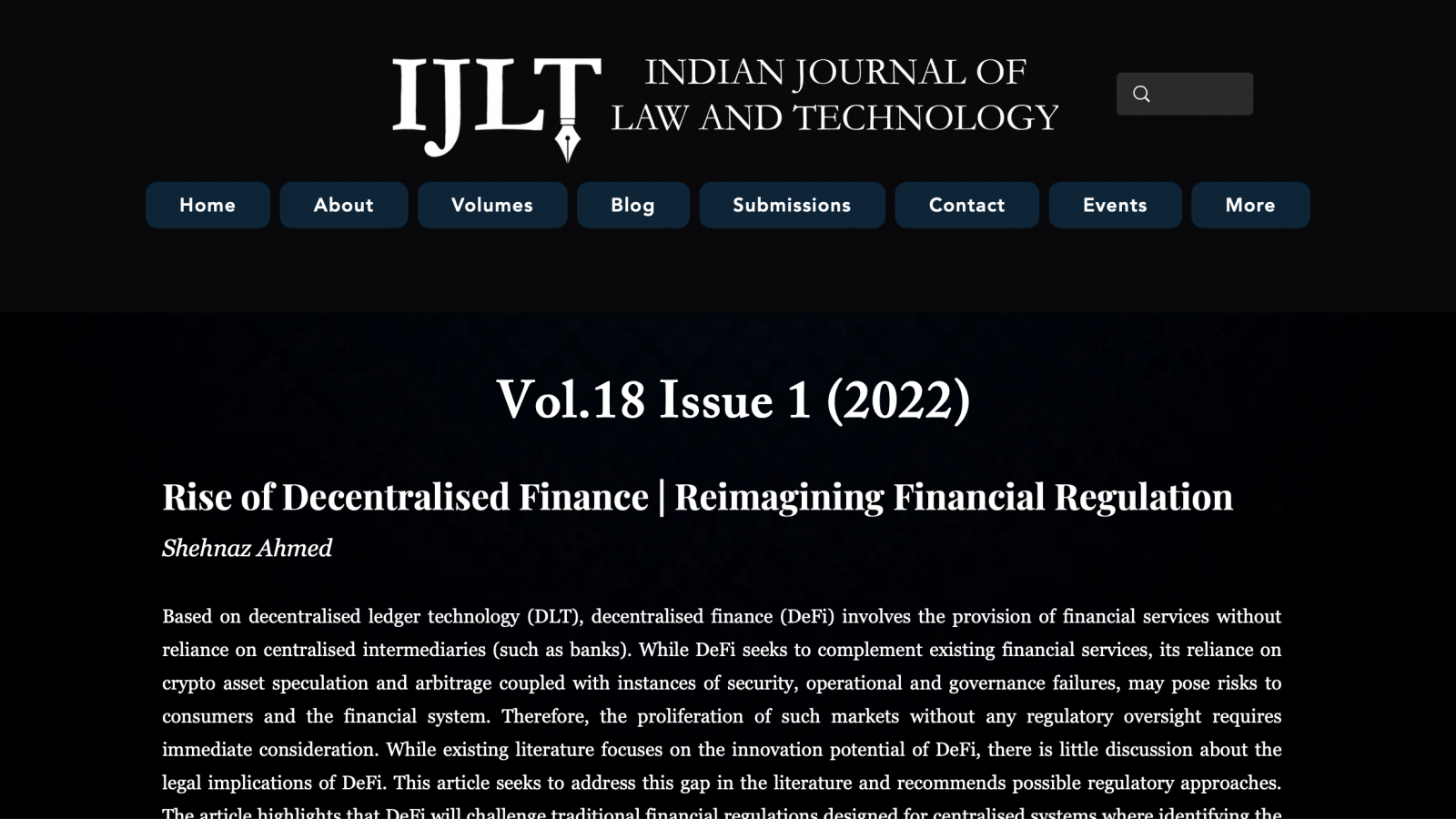
Rise of Decentralised Finance | Reimagining Financial Regulation
Indian Journal of Law and Technology
Based on decentralised ledger technology (DLT), decentralised finance (DeFi) involves the provision of financial services without reliance on centralised intermediaries (such as banks). While DeFi seeks to complement existing financial services, its reliance on crypto asset speculation and arbitrage coupled with instances of security, operational and governance failures, may pose risks to consumers and the financial system. Therefore, the proliferation of such markets without any regulatory oversight requires immediate consideration. While existing literature focuses on the innovation potential of DeFi, there is little discussion about the legal implications of DeFi. This article seeks to address this gap in the literature and recommends possible regulatory approaches. The article highlights that DeFi will challenge traditional financial regulations designed for centralised systems where identifying the subject of regulatory obligations is straightforward. Further, participants in a DeFi system can be spread across multiple jurisdictions, challenging the determination of the relevant jurisdiction whose law will apply. As the DeFi market is still evolving, this article argues that regulatory focus must be on specific aspects. This includes regulatory clarity for cryptoassets, regulating gatekeepers of the DeFi ecosystem i.e., service providers (like exchanges, wallets, custodians), and issuance of regulatory guidance on the applicability of existing laws to DLT systems. These regulatory approaches must be supplemented with measures such as designing internationally well-recognised standards for DeFi services, harnessing technology (“Regtech” and “Suptech”) for better supervision and compliance and leveraging existing regulatory sandboxes for a cost-benefit analysis of such innovations and determining regulatory responses.



